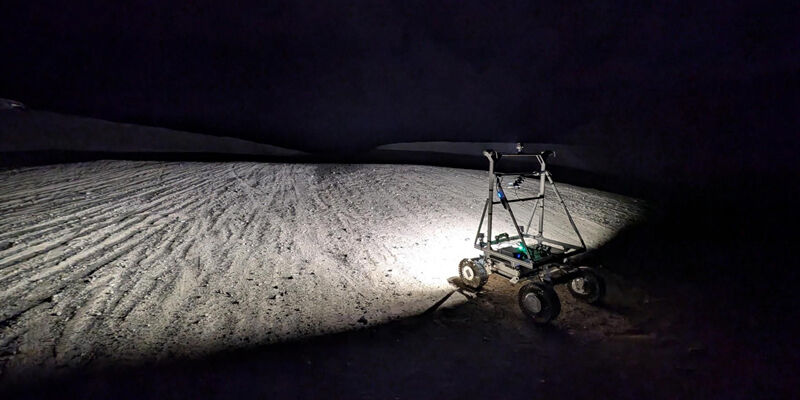A recent roundtable in London explored the possibilities of Europe's Galileo satellite navigation project - and some of the frustrations surrounding Britain's involvement
Late July saw LogicaCMG hosting a roundtable at the Royal Institute of Navigation to discuss the positive effect Galileo would have on the lives of the general public. But with such luminaries on the panel as Lord Neil Kinnock, Professor David Begg, Pat Norris of LogicaCMG, Professor Jonathan Raper, and Tom Wills-Sandford of Intellect, it was no surprise that the debate highlighted almost limitless possibilities.After an introduction by Tom Wills-Sandford, each panellist laid their cards on the table, stating their interests and stake in the debate. First up was Pat Norris of LogicaCMG, a long-standing space industry professional who has played a key role in many of the major space initiatives dating right back to the original Apollo moon landings. Norris was representing the space industry, and also the interests of British businesses in this far-reaching programme. He was followed by Professor Jonathan Raper of the Journal of Location Based Services, who delivered strong arguments for the accuracy of Galileo compared to GPS. Professor Raper gave valuable insight into the breadth of applications that might be available and hinted that it would not be long before location information would become pervasive and accepted, much as the concept of time is now.Lord Kinnock then took up the mantle, initially confessing to a longing for Galileo to be hosted in Cardiff (one of two shortlisted locations for the GNSS {global navigation satellite system} authority base) â a decision that will be announced in December of this year. But in particular, the former EU Transport Commissioner was keen to impress some of the realities of Galileo on the audience: the quite literally limitless potential for applications, including some which are beyond our current imaginings, which underlines the strongest of business cases for the Governmentâs financial involvement in the programme. He then expressed concern, even frustration, about some of the difficulties being encountered at a government level with assigning ownership (with the Department for Transport regarding it as a space programme, and the Department for Trade and Industry regarding it as a transport programme), and hence who should foot the £26million bill over the next five years that would give Britain such an important stake in influencing the development of future services. David Begg then identified some of the many issues from a transport perspective, saying that Galileo was âas significant to the transport industry as the steam train or the internal combustion engineâ. He made an impassioned plea for the need to make more use of the capacity we have on our transport systems and also ensuring that journeys are safe. He believed that by simply charging the same number of road users for road use in a different way, congestion could be reduced by up to 46 percent. Begg also went into some depth as to why existing technologies such as GPS and roadside cameras were insufficient to solve the current UK transport problem â he said that with most of the current localised initiatives for road charging were based on microwave technology, therefore it would be an eye-sore and prohibitively expensive to roll out country-wide. GPS, he stated, was too inaccurate for wholesale change, particularly if charges and fines were to be based on its readings.The discussion was then opened up to questions from the audience, which included representatives from the Department for Transport, the Ministry of Defence, the British National Space Centre (BNSC), UKspace, National Air Traffic Services, the national press and trade press from the IT, transport, telecoms and space industries.The audience was initially concerned with getting a better understanding of the costs involved, and the business case behind the £26million funding the Government had not yet put up. They learned that Galileo was cheaper to implement that GPS, partly because of the lessons learned by the Americans on GPS, and partly due to the efficiency that exists within ESA. The projected benefits by 2020 ran into tens of billions by the time the social benefits, user benefits and producer benefits had been considered â making the £26million investment to stay at the heart of the programmes design and influence seem a pittance in the panelâs opinion.Another journalist was interested to learn about the scope for the military to use Galileo. Though Galileo was, in contrast to GPS, designed for citizen use, there is a PRS module reserved for use by the emergency services and police, and it would be this module that the defence community would used if a consensus could be reached among European participants. It was also noted that it was a British company, LogicaCMG, that had designed the facility that controls who has access!âWhen will the first services actually be running and available to the public?â was another popular question. Begg and Kinnock fielded this with the strong expectation that it would be air traffic control, commercial navigation or road charging initially, although even these will take a few more years while the full constellation is put in place and orbiting successfully. The panel then talked about some of the steps being taken at present to ensure a smooth take-off, such as the work LogicaCMG has invested in to ensure mobile phones are ready, and the European Commission programme being lead by LogicaCMG to ensure that Galileo is factored in to long term planning being done now by organisations like the investment banking community.There were also questions from the motoring correspondents about the benefits to their readers. There was the opportunity for discounts on insurance since it could be based on actual usage, rather than continuing to pay premiums over a three week holiday when the car was not in use, as well as the clear benefit of being charged according to use â opportunity to tax progressively rather than regressively.Then came some closing comments from the panellists to wrap up the debate, and the one that perhaps captured it the most came from Lord Kinnock who explained:âWe live in a knowledge economy and will continue to do so, therefore we need to be equipped with a knowledge infrastructure. Galileo is that infrastructure. A podcast of the debate is available on the LogicaCMG website www.logicacmg.com/uk
Author: Supplied by Wendy Holt
Bio.: Space & Marketing director, LogicaCMG
For more information visit:
Subscribe to our newsletter
Stay updated on the latest technology, innovation product arrivals and exciting offers to your inbox.
Newsletter

